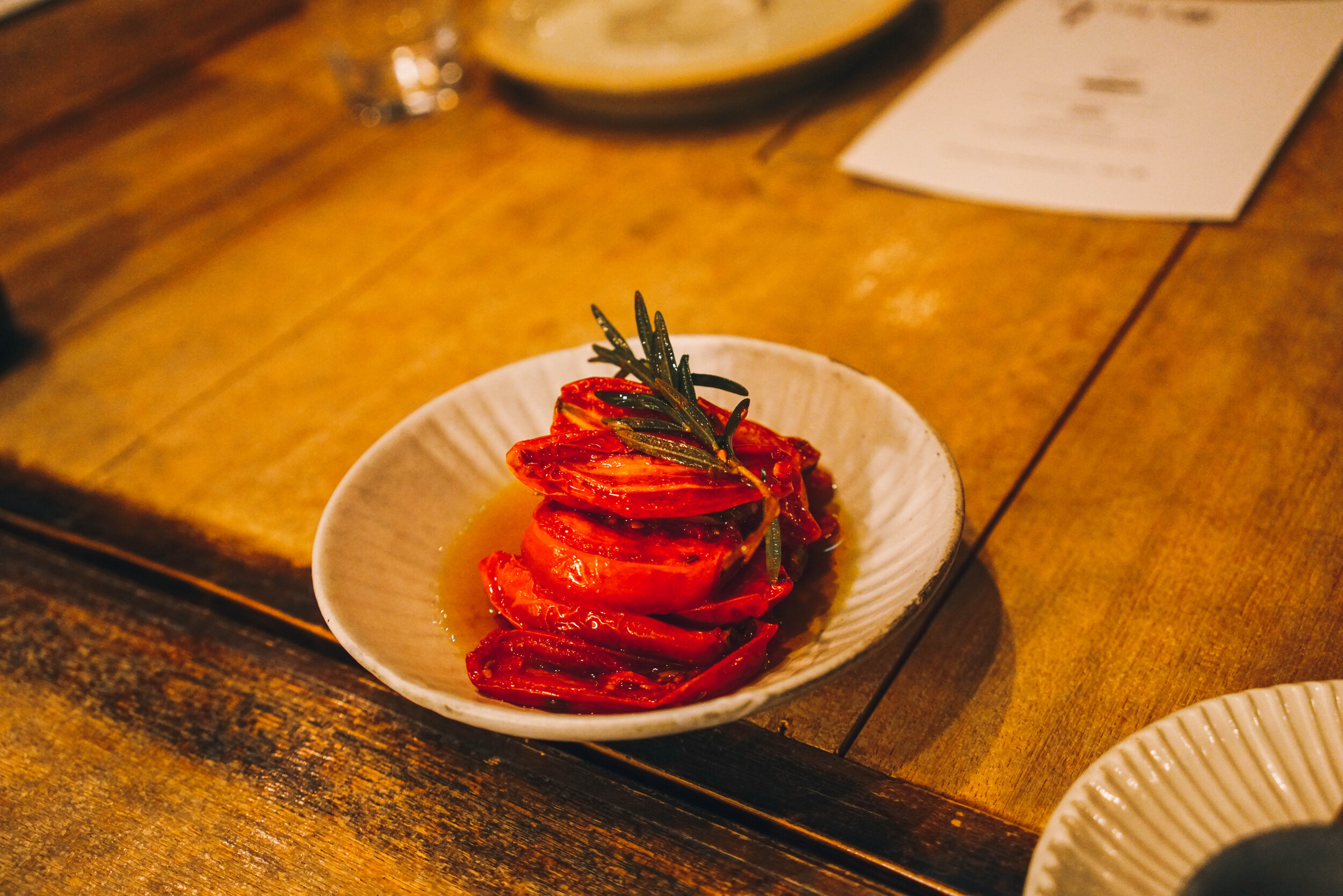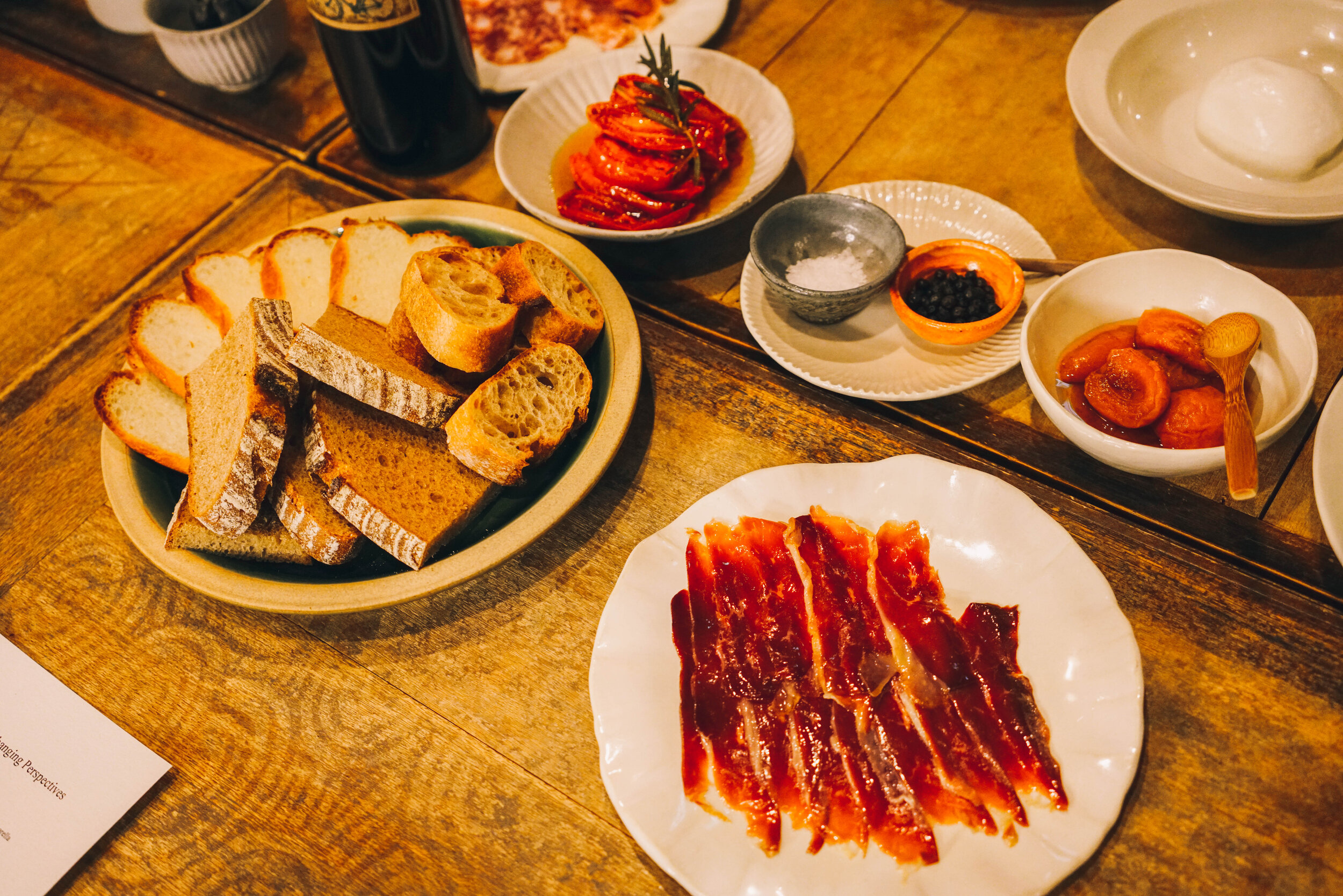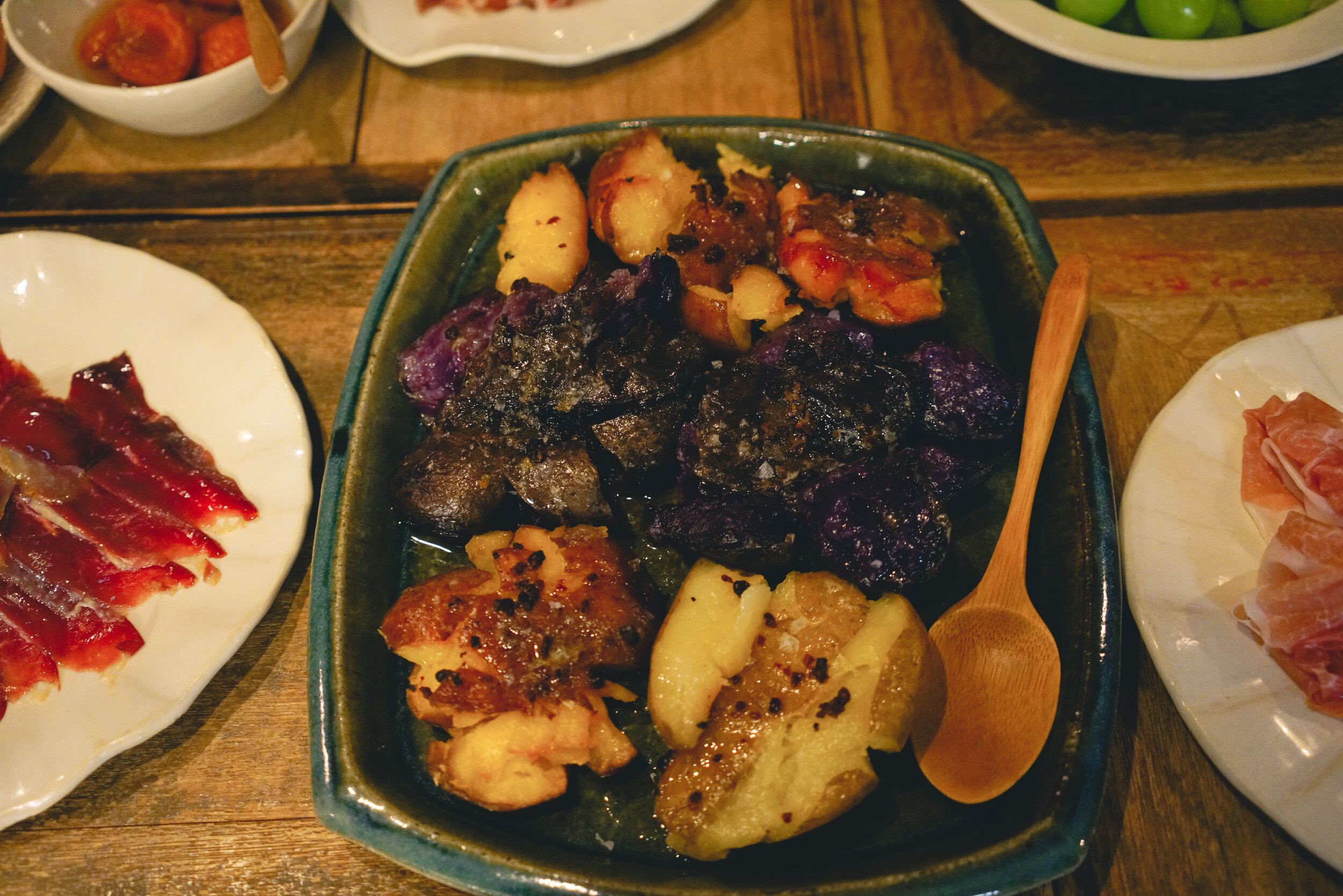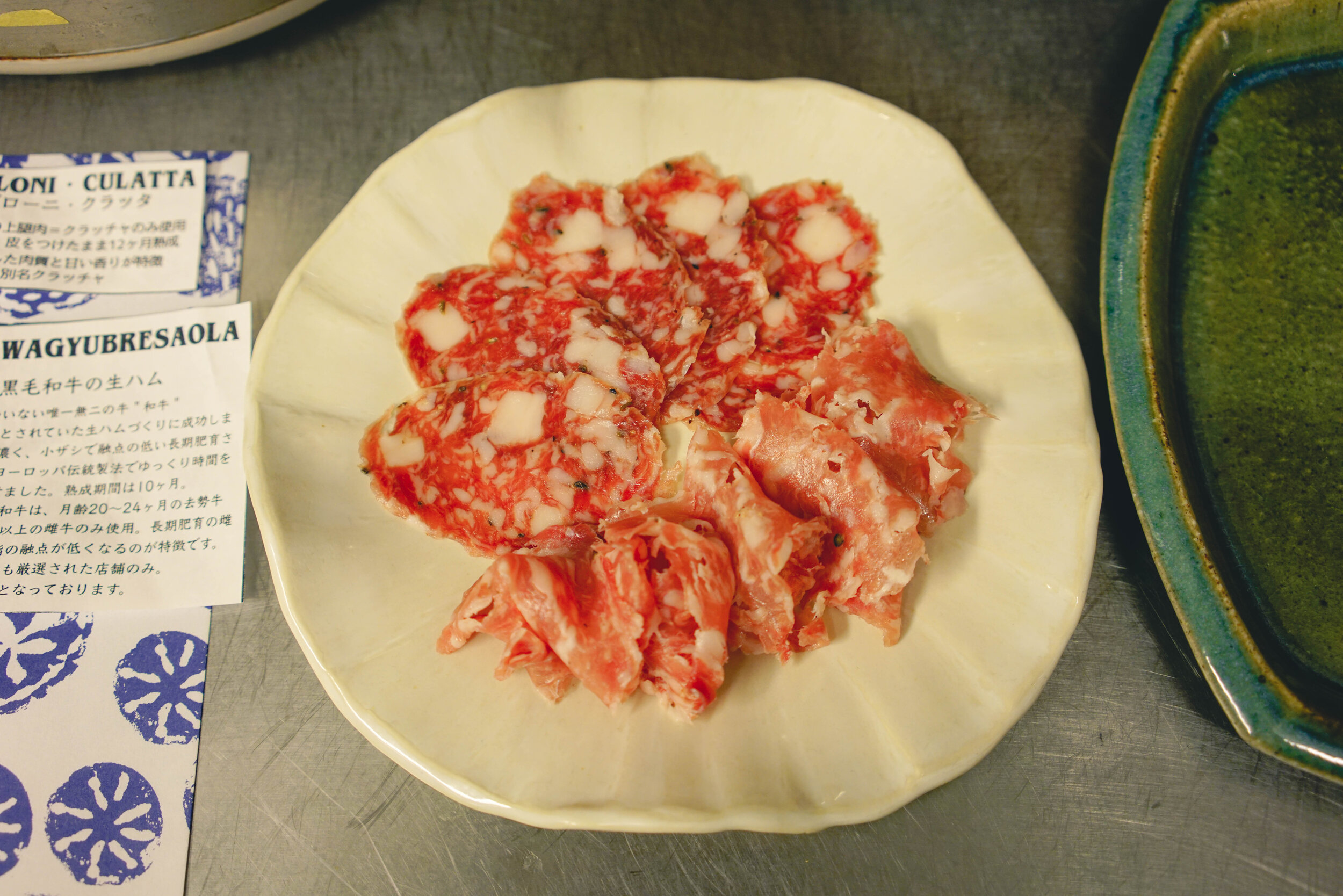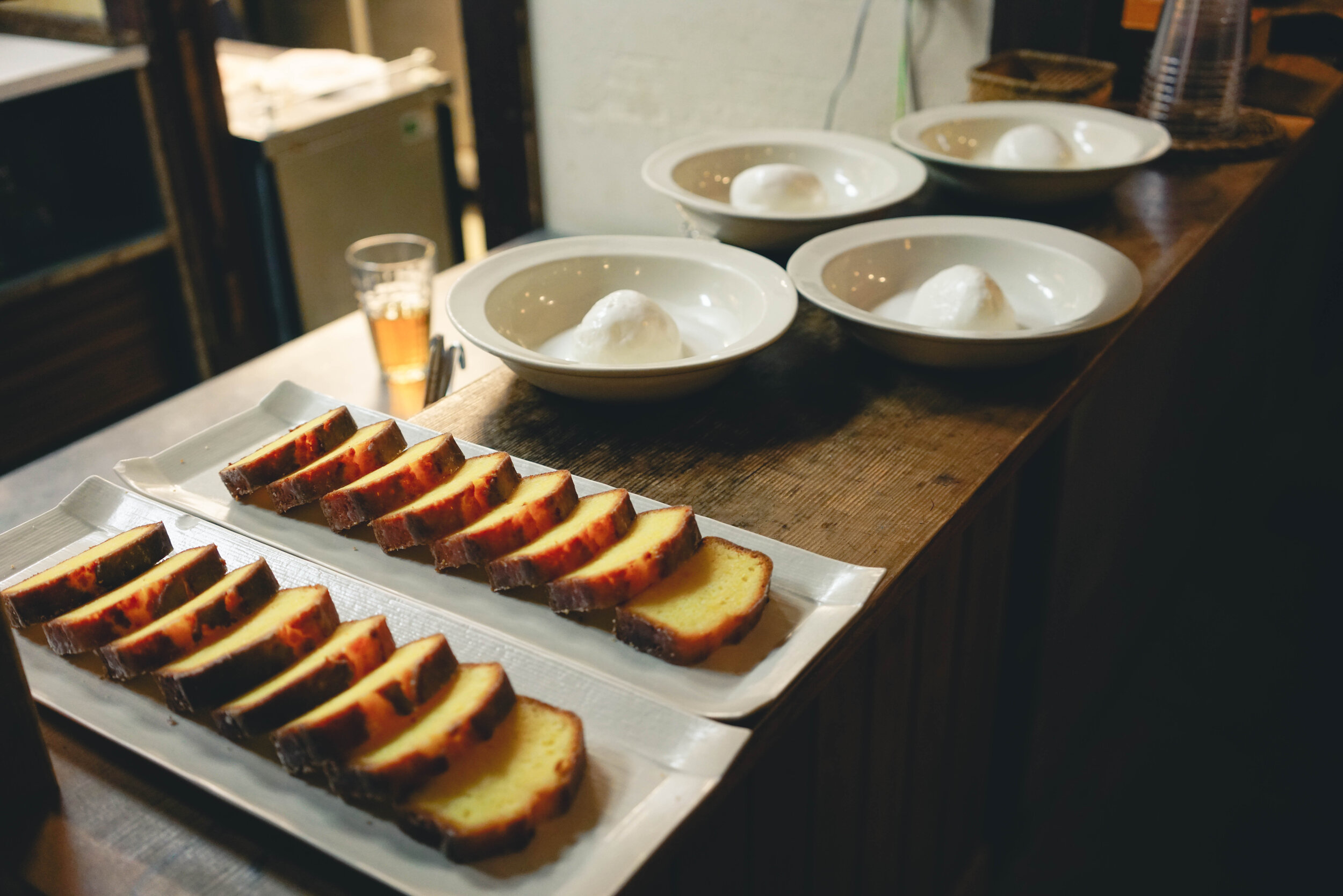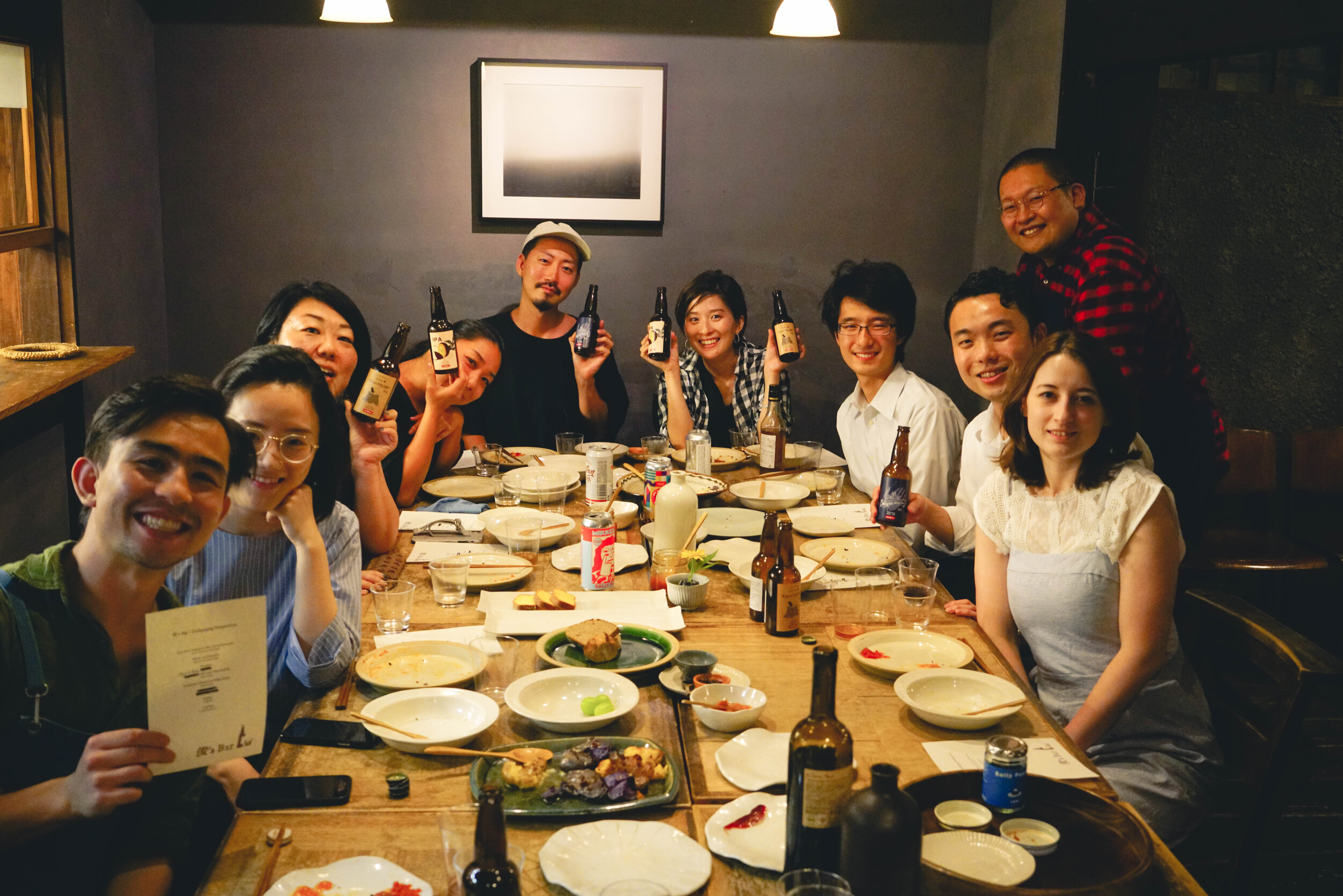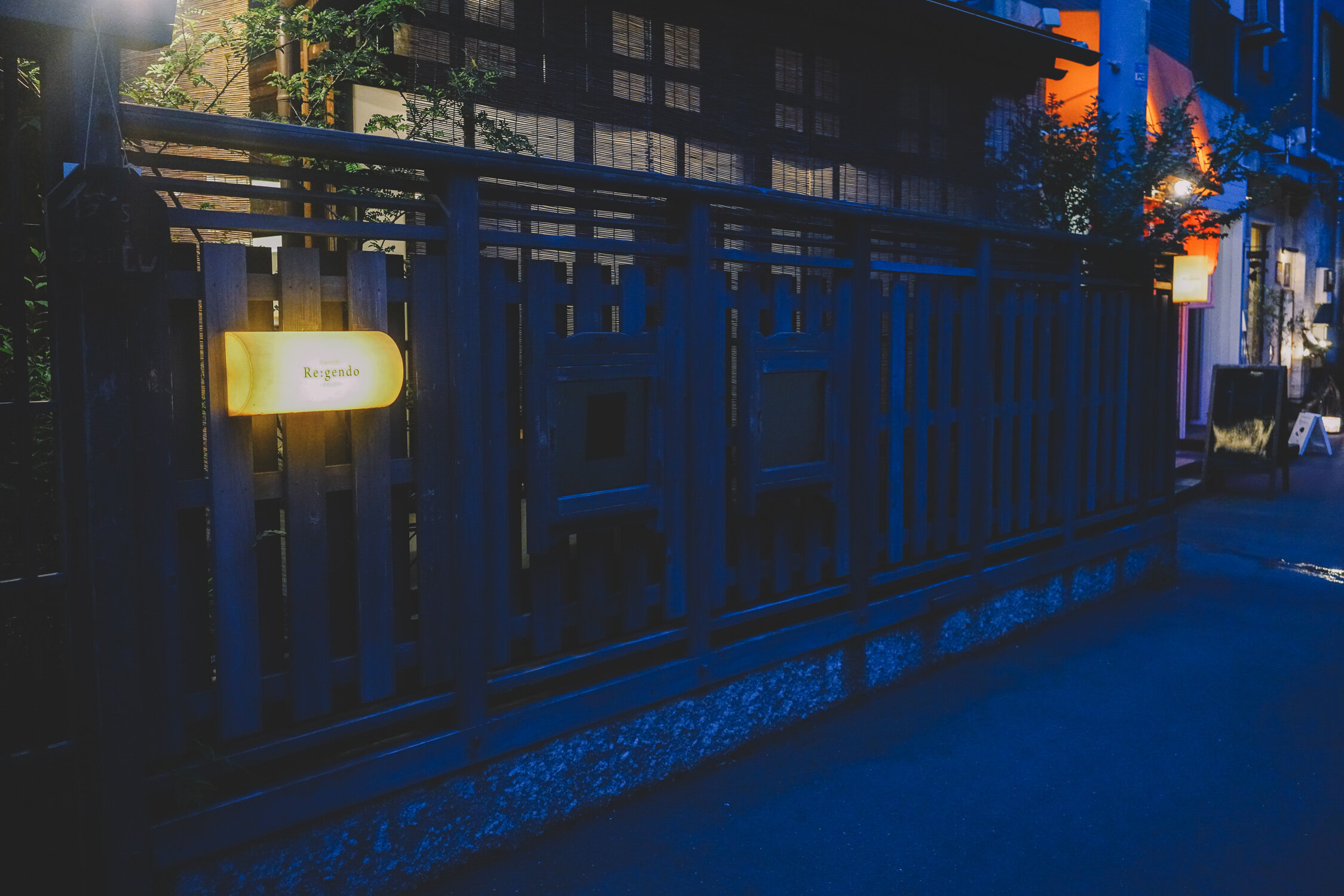Shun's Bar: Exchanging Perspectives
As I was setting the table, goosebumps began to run along my arm. As each plate was placed on the table, it gave me a crescendo of excitement. I’ve set up the tables by combining all of them to make one big one so that people could sit together, and eat and talk over a family-style meal. All the plates I was using were ones I personally chose from various pottery makers, each with its own distinct characteristic. Some with intricate designs and patterns like the Onta-kiln plates, while others had a single color but solid deep hue like the Shussai-kiln plates. The food-vegetables from Shimane Prefecture, mozzarella made locally in Tokyo, salami from Italy- were all carefully picked for its background story. The music playing in the back, The Shape of Things to Come by George Benson, fit the atmosphere creates by the dim yellow lights of the room. It was a space both imagined and created by me.
This was all sort of a moment of confirmation that something felt right, that this dinner event I was preparing for was something I was meant to do.
This was actually the second 俊’s Bar event I organized, the first one being in September. For those who are not familiar, every month I do an event at Re:gendo (my company’s café in Tokyo) where I usually do sort of a dinner meet up with people who are interested in my work and lifestyle in Omori. For some reason, for this event peoples’ schedules just were not open and the turnout was only about 10 people. In my last-minute half-panicking decision making, I decided to totally change the format of the event. Instead of a meet up, I made it to be more of an intimate sit-down dinner with hopes that it would facilitate deeper conversations. I was particularly interested in having a discussion, you know like those ones you would have in college. That was basically the inspiration for the event, to have a dinner discussion event with a small group of people who were not afraid of saying their opinions.
I always enjoyed academic discussions during college, and even after graduating I involved myself in discussion style conversations in Omori. Recently I’ve been having friends come over for dinner at my house, where we have thought provoking conversations over a meal and some good drinks (always necessary for good conversations!).
On the other hand, lemme tell you what I don’t really enjoy. Sitting in plastic chairs arranged in a circle while the host tells you to get drinks and snacks from a table in the back (usually paper cups with convenience store cookies or something). As you leave your snack and beverage on the floor, you watch a PowerPoint in a dark silent room trying to stay awake from the imminent drowsiness that follows after maybe the 30-minute mark as your head starts to bobble up and down.
Nah, I want to talk to people while sitting at a table with good music in the background eating a nice meal accompanied by a good drink. I want to create a space that only I can provide, share, use with the people I enjoy being with. All the while having like a productive discussion session about things that matter in our lives right now.
The dinner’s theme was “Exchanging Perspectives”, in hopes that we could have a conversation about challenging the pre-determined notions of what “rural” or “local” really means and how it affects each other’s lives.
The concept started with a meeting I was involved in at Omori together with some people from the local government from Oda-city. While we were discussing the current state of Oda-city I heard the people from the local government mention things like:
The poor city-folk are living in such a lonely society.
We live in a better environment than they do, people actually say hi to each other here, there’s fresh air, and more space…






